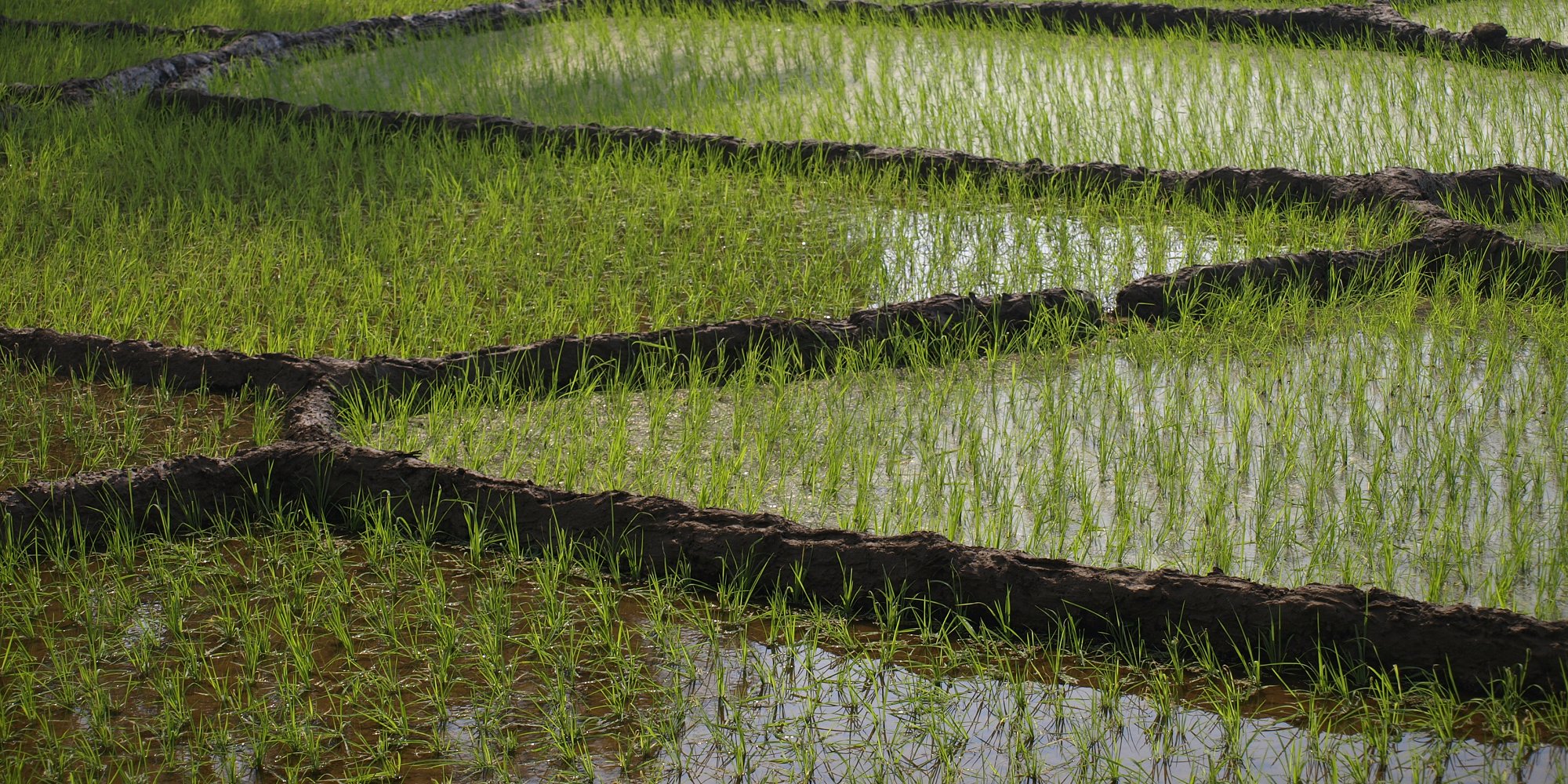Use-Inspired Research Co-Created With Non-Academic Partners
Cornell Atkinson leverages our Innovation for Impact Fund (IIF) to build partnerships and consortia that co-create research agendas, execute unconventional projects between researchers and practitioners, and bridge the gap between scientific knowledge and action on the most important sustainability issues.
We support basic and applied research with a clear pathway to impact and an emphasis on actionable, near-term results. Our Strategic Partnerships team leverages the IIF to:
- Run competitive funding programs for collaborative proposals co-designed with our partners
- Facilitate strategic projects and initiatives co-designed with partners and executed by blended work teams of Cornell faculty, professional staff, and external collaborators
- Enable participation in multi-stakeholder consortia, such as CPIC, TSC, and Field to Market
IIF-supported interdisciplinary teams comprising academics and practitioners collaborate to develop actionable insights, demonstrate new concepts, design useful tools, pilot applications of scientific discoveries, and implement practices that can shape real-world policies and outcomes.
How to Apply
Eligibility:
- All Cornell PIs and CoPIs must meet Cornell’s principal investigator (PI) eligibility criteria
Jacobs Center & Cornell Atkinson Joint Seed Grants
- The 2026 cycle is open:
- Request for Proposals
- Proposals due February 6, 2026
EDF & Cornell Atkinson Rolling Fast Grants
- Always open:
EDF & Cornell Atkinson Joint Research
- The 2026 cycle is closed:
- Previous Request for Proposals
The 2030 Project “AI & Climate” Research-to-Impact Fast Grants
- The 2025 cycle is closed:
- Previous Request for Proposals
TNC & Cornell Atkinson Joint Research
- The 2026 cycle is closed:
- Previous Request for Proposals
IIF Projects:
Managing Ground-Nesting Bee Aggregations for Agriculture in North America (TNC)
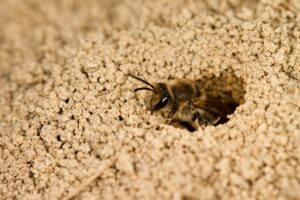
This project unites community science, ecological research, and applied management to study, protect and enhance ground-nesting bee aggregations within agricultural landscapes. Researchers from Cornell and The Nature Conservancy will document robust nesting aggregations of ground nesting bees, identify the soil and landscape factors driving nesting success and develop evidence-based best management practices to sustain, restore and enhance these vital habitats on and around working farms. By integrating field data with geospatial modeling, they will build the first U.S. framework for incorporating ground-nesting bee conservation into agricultural planning. Ultimately, this project will connect pollinator habitat with on-farm decision-making, offering farmers practical, evidence-driven strategies to support native bees while strengthening the resilience and sustainability of agricultural systems.
Cornell: Bryan Danforth (Cornell CALS, Entomology)
TNC: Lesley Atwood (Agriculture and Climate Scientist)
Evaluating the Effects of Pesticide Reductions and Restrictions on Biodiversity (TNC)

As populations of birds and butterflies continue to plummet across North America, a growing body of evidence points to pesticides as one important driver. Though multiple incentives to restrict or reduce the use of pesticides have been implemented from local to state levels, outcomes for biodiversity remain poorly tracked. Researchers from Cornell and The Nature Conservancy will (1) evaluate the effectiveness of pesticide restrictions and mitigation strategies, (2) identify which approaches and scales of implementation can best deliver positive outcomes for biodiversity, and (3) work with partners to develop outreach materials for municipalities, state agencies, input companies, and decision-makers.
Cornell: Laura Melissa Guzman (Cornell CALS/Entomology), Catherine Kling (Dyson School of Applied Economics and Management), and Amanda Rodewald (Cornell CALS/Ashley School of Global Development and the Environment; Cornell Lab of Ornithology)
TNC: Kris Johnson (Director of Agriculture, North America)
Modeling and Validating Restoration Site Priorities Based on Population Connectivity (TNC)

Coastal marine environments have suffered from historical overfishing, eutrophication and other pollution. Researchers from Cornell and The Nature Conservancy seek to restore and protect these ecosystems and their services by developing spatially explicit approaches to predict ecosystem-scale processes. Restoration often focuses on a few species with an outsized foundational role in building habitat that supports whole communities. In the case of oysters and other bivalves, their filter-feeding also provides water clarification and nutrient cycling ecosystem services, helping to reduce coastal eutrophication. Few other foundational species pack as much ecosystem punch as native eastern oysters, as well as important One Health links: the growing US oyster aquaculture industry, a coastal economic engine, contributes ecosystem services described above, generates an eco-friendly dietary protein, and is highly regulated for food safety.
Cornell: Matthew Hare (Cornell CALS/Ashley School of Global Development and the Environment)
TNC: Boze Hancock (Senior Marine Habitat Restoration Scientist), Carl Lobue (NY Ocean Programs Director), Marta Ribera (Spatial Ecologist)
Smart Flow Sensors For Smart Stormwater Management (TNC)
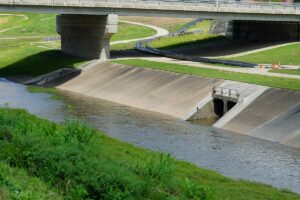
Climate change and growing urbanization are intensifying pressures on water resources. Urban watershed runoff leads to pollution and increased flood risk. The Nature Conservancy’s Brightstorm project addresses these challenges by implementing Digital Water Solutions (DWS), automating stormwater infrastructure operation. However, existing flow monitoring technologies that they rely on require physical water contact, are expensive and labor-intensive, and need specialized expertise and frequent calibration visits. Cornell and TNC researchers will develop a non-contact, image-based system to gauge surface water flow in small waterways, including natural and engineered channels. They will utilize infrared and visible-light images of the flowing water surface to calculate flow velocity and discharge, building on previous Cornell work using small, low-cost cameras. Unlike existing technologies, this system minimizes disruption at measurement locations, greatly expanding deployment possibilities, particularly on privately owned land. This will enable the expansion of DWS sites and flow gauging at other locations.
Cornell: Seth A Schweitzer (Cornell Duffield Engineering/Civil and Environmental Engineering) and Todd Cowen (Cornell Duffield Engineering/Civil and Environmental Engineering)
TNC: Matthew Rea (Director of Water Technology) and Craig Holland (Senior Director of Investments)
No Bull: Understanding Real and Perceived Barriers to Scaling Cattlevoltaics (TNC)
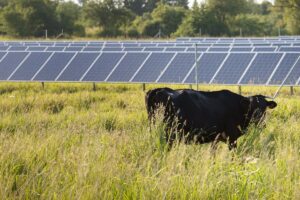
‘Cattlevoltaics’ combines solar energy production with cattle grazing beneath photovoltaic arrays. Social research specific to cattlevoltaics and grazing agrivoltaic systems is sparse. However, to scale up cattlevoltaics projects, real and perceived barriers to deploying cattlevoltaics within the agricultural community and solar industry must be identified. This mixed-methods social science project from Cornell and The Nature Conservancy researchers will feature in-person workshops with agricultural producers and solar developers hosted in different U.S. regions. Qualitative and quantitative data collection and analysis will capture key beliefs and attitudes, perceived opportunities and barriers, and interest level in cattlevoltaics. The research will build a deeper understanding of how different stakeholders approach cattlevoltaics, help foster ideas to solve cattlevoltaic project challenges, and pave the way to more quickly achieve conservation and socioeconomic benefits from projects at scale.
Cornell: Richard Stedman and Kathryn Walsh (both Cornell CALS/Ashley School of Global Development and the Environment)
TNC: Morgan Higman (Climate Strategy Director) and Jakob Lindaas (Director of Climate Action, TNC Colorado)
Power-to-X Pathways for a Decarbonized Energy Future: An Integrated Analysis and Decision-Making Framework (EDF)
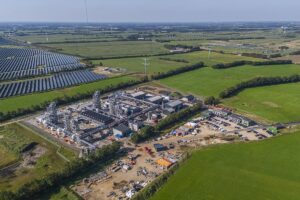
Power-to-X (PtX) pathways convert electricity into e-fuels like hydrogen, ammonia, and methanol. These chemicals and fuels are necessary to decarbonize hard-to-abate sectors like industry and heavy transport, and they provide long-duration energy storage for electricity generation. Each PtX technology pathway offers benefits but faces challenges related to technology readiness, infrastructure, and sector-specific suitability. Existing power system planning models, such as GenX, GE Maps, and SWITCH, focus on power system details but often abstract the chemical processes critical to PtX. Conversely, most PtX research abstracts the details of power system operations, creating a gap that hinders accurate technological path comparisons. This collaborative project between Cornell University and Environmental Defense Fund researchers aims to bridge the gap by integrating detailed sectoral and process modelling for the most promising PtX technology pathways within the power system capacity expansion platform, SWITCH. By doing so, researchers will facilitate more accurate cost comparisons among technologies across various scenarios.
Cornell: Lindsay Anderson (Cornell CALS, Biological and Environmental Engineering)
EDF: Thomas Brindle, Luis Fernández Intriago
Collaborator: Jerry Murphy (University College of Cork, Ireland)
Coupling Critical Flow Physics to Biogeochemistry, Policy, and Local Communities for the Resiliency and Restoration of Mangroves and Their Blue Carbon (EDF)
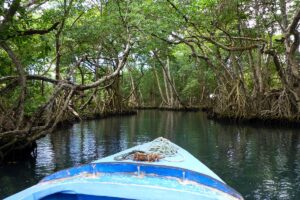
Mangroves provide a host of climate and ecosystem services to coastal communities, including biodiversity, fish nursery habitat, protection from flooding and storm surge, and carbon capture and storage. More than half of the world’s mangrove ecosystems are at risk of collapse by 2050, under the pressures of unsustainable development and climate change. Meanwhile, government investments and corporate purchases on the voluntary carbon market have created increasing demand for offset projects based on mangrove ecosystem restoration. Most of these restoration projects depend on planting mangrove propagules for reforestation — a single-pronged approach that has led to high failure rates. New evidence suggests planting efforts may be more successful when coupled or even replaced with ecological engineering that aims to restore natural tidal hydrology that has been disrupted by blockages or channel cuts. Cornell and Environmental Defense Fund researchers will leverage environmental fluid mechanics, biogeochemistry, hydrodynamics, climate change-induced sea level rise, and community stewardship of mangrove forests to guide effective and lasting mangrove restoration.
Cornell: Todd Cowen, Seth Schweitzer, and Johann Delgado (all Cornell Engineering, Civil & Environmental Engineering)
EDF: Gemma Carroll, Kristin Kleisner
Collaborator: Alejandro Orfila (Director of the Mediterranean Institute for Advanced Studies, IMEDEA)
Providing Local and Regional Agencies with Air Quality and Health Impacts from Dust and Wildfire Aerosol Changes Due to Climate and Land Use Change (EDF)
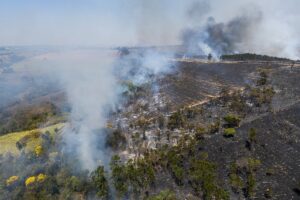
Researchers seek to understand how health impacts from wildfire and dust aerosols have changed over time and how those impacts may change in the future, especially in Latin America. In this collaborative project between Cornell University and Environmental Defense Fund, researchers will first estimate fine particle air pollution concentrations from wildfires, agricultural fires, fossil fuels, and desert and agricultural dust. They’ll use the Community Earth System Model (CESM2.1), to estimate fine particle concentrations in preindustrial (1850), present day (2020) and future time periods (2030, 2040, and 2050). Recent data on aerosol pollution will then be used to improve the model. Researchers will also calculate mortality, respiratory disease, and economic impact due to aerosol pollution. Throughout the research, they will engage with policy makers to tailor information to their needs, leveraging other EDF efforts such as AirTracker and FireSAT. Outcomes could include policies that reduce agricultural burning, or aiding communities in planning for poor air quality days.
Cornell: Natalie Mahowald (Cornell Engineering, Earth & Atmospheric Sciences); Alistair Hayden (Veterinary College, Public & Ecosystem Health)
EDF: Fiona Lo
Overcoming Baseless Baselines to Drive GHG Mitigation in Rice Systems (EDF)
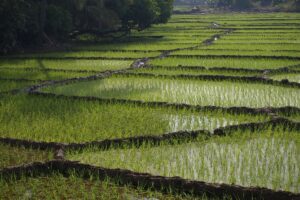
Rice growers traditionally flood their paddies to keep down weeds, but this agricultural practice creates methane, a potent climate-warming gas. India has committed to reduce its greenhouse gas emissions by 45% by 2030 and to achieve ‘net zero’ by 2070, and agrifood systems in India are responsible for more than 30% of national emissions. These factors have led to a proliferation of private capital in the voluntary carbon market for Indian agriculture, and a focus on technologies such as alternate wetting and drying in rice paddies. However, in Eastern India, diverse hydrologic conditions in farmer fields, heavy monsoon rains, and poor drainage hamper such efforts. Regional and national baseline GHG emission estimates for rice in India do not adequately capture this hydrologic diversity. The implications of poor baselines are profound: most companies and state governments are supporting ineffective interventions unresponsive to underlying baseline hydrologic conditions, often leading to a focus on the wrong rice geographies and, where GHG emissions are truly high, ineffective or inappropriate interventions. The correct prescription requires the right diagnosis. This project between Cornell University and Environmental Defense Fund researchers aims to deliver conceptual clarity on how GHG baselines differ in India’s rice belt and how mitigation solutions can be effectively matched to varied production contexts.
Cornell: Andrew McDonald and Hari Sankar Nayak (both Cornell CALS, School of Integrative Plant Science)
EDF: Alison Eagle
The Cornell Dairy Methane Benchmark: Validating Data to Support Climate Mitigation in Livestock (Multi-NGO)
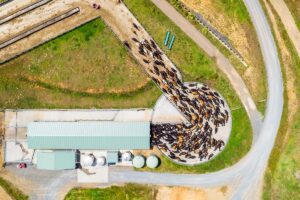
With the U.S. dairy industry pledging to achieve Net Zero by 2050, there is an urgent need for scalable methane monitoring systems, as effective mitigation strategies depend on accurately and consistently tracking emissions over time. The primary goal of this project is to evaluate the feasibility of using satellite and aircraft-based methane data as a tool to monitor dairy farming emissions and inform policy development and on-farm decision making. Data will be gathered from the Cornell Nutrient Management Spear Program farms, from EDF’s MethaneAIR, which measures methane emissions from a specially equipped jet, from Carbon Mapper, and from the United Nations Environment Programme’s International Methane Emissions Observatory. To ensure practical impact, project partners will engage stakeholders through workshops with dairy farmers, industry experts, and policymakers.
This project is part of a dairy sustainability research program jointly managed by Cornell Atkinson Center for Sustainability, The Nature Conservancy, Clean Air Task Force, and Environmental Defense Fund.
Cornell: Miel Hostens (CALS, Animal Science); Joseph McFadden (CALS, Animal Science); Quirine Ketterings (CALS, Animal Science)
NGO Partners: Fernanda Ferreira (CATF); Joe Rudek (EDF)
Interventions in Early Life of Dairy Calves to Reduce Methane Emissions in Adulthood (Multi-NGO)
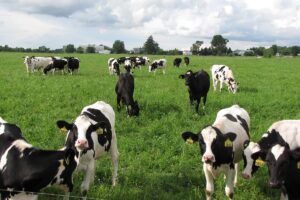
Around 40% of dairy operations in the US get their heifer cow replacements from large calf-raising facilities, many of which limit their feedings to one gallon of milk or milk replacer twice daily. Previous studies have shown that calves fed additional milk or milk replacer produced more milk during their first lactation, experienced less disease, gained more weight, and emitted less methane than calves fed lower nutritional plans. This project will study 122 dairy calves, half fed a diet similar to that fed in large calf ranches and half fed a higher-energy diet. Researchers will test the effects of improved feeding plans for dairy calves and measure their methane intensity at different time points post-weaning with a greenhouse gas sensor.
This project is part of a dairy sustainability research program jointly managed by Cornell Atkinson Center for Sustainability, The Nature Conservancy, Clean Air Task Force, and Environmental Defense Fund.
Cornell: Francisco Leal Yepes (Vet School, Population Medicine and Diagnostic Sciences)
NGO Partners: Fernanda Ferreira (CATF); Peri Rosenstein (EDF)
Rapid Screening of Manure Storage Additives to Reduce Emissions and Enhance Fertilizer Benefits (Multi-NGO)
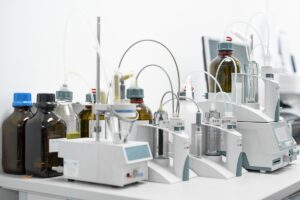
In the U.S., dairy manure storage protects water quality and provides an important fertilizer source for farmers’ fields, but it also emits significant amounts of methane, a potent greenhouse gas, and ammonia. Direct manure additives are increasingly marketed to dairy producers as a silver bullet fix for these emissions, boasting up to 90% reductions in methane and ammonia, but most of these performance claims have not been substantiated by a neutral third party. Researchers will test commercial manure additives and develop a rigorous screening protocol to identify other promising manure additives for testing. They will share findings with dairy farmers and policymakers to facilitate wider dairy producer adoption of effective products.
This project is part of a dairy sustainability research program jointly managed by Cornell Atkinson Center for Sustainability, The Nature Conservancy, Clean Air Task Force, and Environmental Defense Fund.
Cornell: Jason Oliver (CALS, Animal Science)
NGO Partners: Fernanda Ferreira (CATF); Stephanie Herbstritt (CATF); Joe Rudek (EDF); Partha Ray (TNC); Alisha Staggs (TNC)
Market Opportunities to Reduce Dairy Farm Methane Emissions: Assessing Producer and Consumer Acceptance of Feed Additives (Multi-NGO)
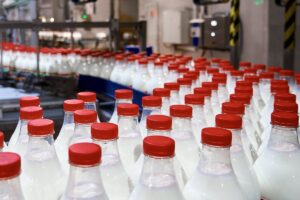
Studies suggest that, although feed additives may provide emission reduction in dairy cattle, farmer and consumer acceptance of these products is unclear. In order to examine the market and methane reduction potential of feed additives in the U.S. dairy industry, this research will examine consumers and dairy farmer views of these technologies. Researchers will assess consumer acceptance and willingness to pay for dairy products from cows fed diets containing methane-reducing ingredients, such as 3-nitrooxypropanol (3NOP), seaweed, tannins, and essential oils. Researchers will also analyze dairy producer attitudes and willingness to supply milk produced using methane-reducing feed additives. Together, these will reveal the market potential for reducing dairy cow methane emissions using feed additives and support the development of market-based and policy mechanisms to accelerate adoption.
This project is part of a dairy sustainability research program jointly managed by Cornell Atkinson Center for Sustainability, The Nature Conservancy, Clean Air Task Force, and Environmental Defense Fund.
Cornell: Christopher Wolf (SC Johnson, Dyson); Wendong Zhang (SC Johnson, Dyson); Mike Van Amburgh (CALS, Animal Science)
NGO Partners: Fernanda Ferreira (CATF); Joe Rudek (EDF); Partha Ray (TNC); Alisha Staggs (TNC)
Understanding Biogas Utilization Pathways and State-Level Policies from US Dairy Digesters (Multi-NGO)
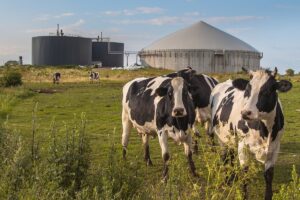
Dairy manure digesters capture methane from manure that would otherwise have been emitted in the form of biogas. This biogas can be used to generate electricity on the farm, it can be upgraded to renewable natural gas (which can be sold for commercial use off-farm), or it can be flared. The emission-saving potential of digesters depends on how the biogas is used and on the surrounding infrastructure for processing and transport of biogas end products, fugitive emissions, and new co-pollutants. To enable maximum emissions reductions and clarity among diverse policies, researchers will create an inventory of federal and state-level policies for anaerobic digesters, and a map of potential locations for future digesters, taking into account different biogas utilization pathways.
This project is part of a dairy sustainability research program jointly managed by Cornell Atkinson Center for Sustainability, The Nature Conservancy, Clean Air Task Force, and Environmental Defense Fund.
Cornell: Wendong Zhang (SC Johnson, Dyson); Christopher Wolf (SC Johnson, Dyson); Lauren Ray (CALS, Animal Science)
NGO Partners: Akin Olumoroti (EDF); Partha Ray (TNC); Alisha Staggs (TNC)
Analysis of Carbon Dioxide Removal Policy Impact Pathways (CATF)

As the urgency to address climate change grows, this project focuses on evaluating policy pathways to scale up carbon dioxide removal (CDR) technologies in the United States, aiming to support the target of one gigaton of annual CDR capacity by mid-century. In collaboration with the Clean Air Task Force (CATF), Cornell researchers will use advanced modeling tools to analyze the cost-effectiveness and impact of various CDR policy options, including nature-based (e.g., afforestation, soil carbon sequestration), hybrid (e.g., biomass carbon removal and storage), and engineered solutions (e.g., direct air capture). This work will identify the most promising policy levers—such as direct public investment, R&D support, and demand-side incentives—needed to maximize CDR feasibility and scalability while minimizing taxpayer costs. The outcomes of this analysis will inform policymakers, support legislative development, and build coalitions for advancing CDR, ultimately contributing to effective carbon management and sustainable decarbonization strategies.
Cornell: Fengqi You (Cornell Engineering/Mechanical and Aerospace Engineering)
Partner: CATF
Modernizing Existing Dams to Meet Energy and Environmental Objectives in the Western Balkans (TNC)
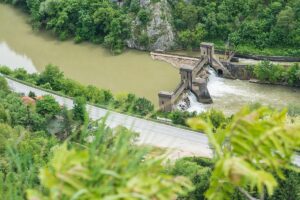
As Western Balkan countries work to decarbonize their economies, solar and wind energy are projected to grow rapidly. Aging hydropower plants in the Western Balkans will also be needed to stabilize the grid when solar and wind output is low; however, many of these facilities lack modern environmental safeguards to minimize disruptions to fish migration, natural flow regimes, and sediment transport, with serious consequences for freshwater biodiversity. This collaborative project between Cornell University and The Nature Conservancy researchers will assess how much of the existing fleet can be modernized to meet both energy balancing needs and contemporary environmental objectives. By integrating repowering and retrofitting scenarios, researchers aim to quantify trade-offs between energy generation, biodiversity protection, and projected costs.
Cornell: Alexander Flecker (Cornell CALS/Ecology and Evolutionary Biology) and Carla Gomes (Bowers College of Computing and Information Science)
TNC: Katie Kennedy, Tara Moberg, Mate Zec, Igor Vejnovic
Collaborators: Rafael M. Almeida (Indiana University and former Cornell Atkinson Postdoc)
Simulating Capacity for Ecosystem Services from Solar Facilities on Abandoned Minelands in Southern Appalachia (TNC)
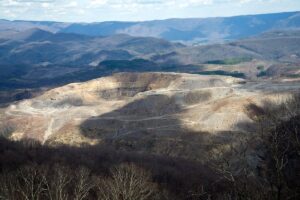
The Starfire Renewable Energy Center is being built in Appalachia, at one of the largest former coal mines in the country. Siting renewable energy infrastructure on marginalized lands, such as minelands and brownfield sites, is a broadly popular idea; however, the technical expertise to realize co-benefits such as natural hazard risk mitigation and solar grazing is lacking. This collaborative project between Cornell University and The Nature Conservancy researchers seeks to inform, through the 3C’s (climate, conservation, and community) the site design and permitting of the project. Starfire offers a unique opportunity to simulate restoration pathways to achieve multiple sustainability objectives, allowing for optimization of operational solar facilities on minelands to benefit rural communities.
Cornell: Steve Grodsky (Cornell CALS/ Natural Resources and the Environment; USGS) and Ginger Allington (both Cornell CALS/Natural Resources and the Environment)
TNC: Liz Kalies, Nathan Cummins
Untangling the Causes of Tree Mortality with Remote Sensing to Increase Urban Climate Resilience (TNC)

Trees cool cities, reducing heat-related disease and death. A growing recognition of trees’ benefits to public health and climate resilience has prompted cities around the world to set ambitious targets for tree canopy coverage. Achieving these goals will require protection and care of existing trees, and planting of new ones in ways that maximize their growth and long-term survival. Current field-based strategies to assess tree health and the causes of mortality are labor-intensive, which limits their usage at larger scales. Emerging remote-sensing technologies could better quantify tree mortality and its causes affordably across large areas. This project — a collaborative effort between scientists at Cornell University and the Nature Conservancy — will create comprehensive models of tree mortality across New York City by combining several complementary remote sensing-derived datasets that the researchers have developed. The work will address knowledge gaps and inform policies in urban planning and forestry to enhance the health of trees and therefore people.
Cornell: Daniel Katz (Cornell CALS/School of Integrative Plant Science)
TNC: Michael Treglia
Accelerating Farmer Adoption of Conservation Practices: Economic Experiment Evidence that Reduce Hypothetical Bias (TNC)
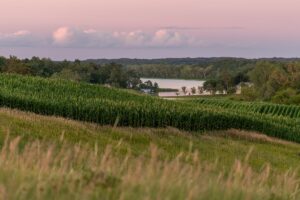
Nearly half of all lakes in the U.S. suffer from nutrient pollution, negatively impacting drinking water and recreation for millions of people. Saturated buffers – areas of perennial vegetation between agricultural fields and waterways – can improve water quality outcomes by minimizing soil and nutrient erosion. Cost and effort to install such buffers limit farmer adoption; targeted incentives help address these barriers. This collaborative project led by researchers at Cornell University and The Nature Conservancy seeks to generate accurate estimates of Midwestern farmers’ willingness to adopt conservation practices, and to identify the leakiest fields that will generate the greatest bang for the buck. These findings will inform policy and program recommendations to support sustainable agricultural systems and regional water quality improvement.
Cornell: Catherine Kling and Wendong Zhang (both Dyson/Applied Economics and Management)
TNC: Randy Dell, Emily Zimmerman, Shamitha Keerthi
Collaborators: Gregory Howard (East Carolina University)
Guiding Biodiversity Protection & Aquaculture Siting in Lake Tanganyika Using eDNA (TNC)
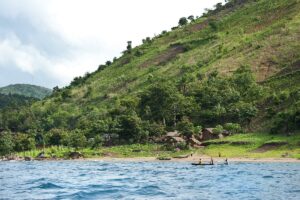
Lake Tanganyika in eastern Africa is a global hotspot of freshwater biodiversity, hosting more than 2,000 aquatic species. The lake is also an important source of human nutrients, with a growing aquaculture industry. Intense fishing pressure, tilapia farms and nearby deforestation all threaten the lake’s biodiversity. Ecosystem protection efforts, such as fishery management zones and reserves, are localized efforts, hindering lake-wide conservation planning. This project will leverage environmental DNA (eDNA) – low-impact genetic testing of water samples – to survey species across the Tanganyika coastline. Pilot work by scientists at Cornell University and The Nature Conservancy demonstrated the effectiveness of this approach, and in this next phase researchers will broaden their sampling to the entire Tanzanian coast (420 km).
Cornell: Peter McIntyre and Jared Freeman (both Cornell CALS/Natural Resources and the Environment)
TNC: Colin Apse, Tuyeni Mwampamba
What Does ‘Well Connected’ Mean in the Context of Target 3 of the Global Biodiversity Framework? (TNC)
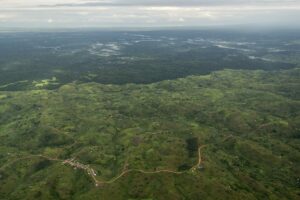
The United Nations’ 2030 biodiversity goals call for conserving at least 30% of land and sea ecosystems. To address habitat fragmentation and support species migration, protected areas should be “well-connected,” per the goals, though that phrase is not defined. This project seeks to provide quantitative guidance to countries and others on interpreting whether their protected areas are “well-connected.” Researchers at Cornell University and The Nature Conservancy will develop statistical thresholds for indicators that classify protected-area connectivity as low, medium, or high, at the individual area level and at landscape levels. They will also assess the applicability of these indicators and thresholds through national case studies.
Cornell: Gary Tabor (Cornell CALS/Natural Resources and the Environment)
TNC: Erin Poor, Kimberly Hall, Carrie Schloss, Aaron Jones
Collaborators: Annika Keeley (Center for Large Landscape Conservation)
Climate-Resilient Energy Systems: Integrating Power System Analysis with Community-Based Insights (CATF)
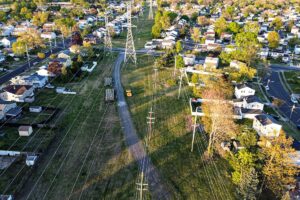
Climate policies often require large long-term investments in clean energy technologies, but decision-making is complicated by trade-offs between costs, emissions, and system reliability. To combat that challenge, Cornell researchers are developing large-scale economic modeling with detailed operational analysis to create a new framework and modelling tool that can better guide both infrastructure investments and day-to-day system operations. The tool is being piloted through a New York case study and designed as an interactive platform for stakeholders to explore different pathways and trade-offs in the energy transition. Additionally, the proposed tool will support a “table-top” platform to allow stakeholders to explore key questions and the influence of preferences on outcomes and trade-offs.
Cornell PI: Lindsay Anderson (Cornell CALS/Biological and Environmental Engineering)
Partner: CATF
Climate-Sensitive Risk Assessment for Targeted Prevention of Cardiometabolic Diseases (EDF)

Prevalence of cardiometabolic diseases (CMDs) has risen steadily over the past 30 years, now accounting for over 30% of deaths worldwide. Risk factors include genetics, patient behavior, and environmental exposure. Climate-associated exposures – such as air pollution, extreme heat, natural disasters, and climate migration – have emerged as major concerns for cardiometabolic health. This project will create new climate vulnerability indices that are specific to CMDs, such as kidney disease, atherosclerosis, and heart failure. We will utilize a dataset of over 1.3 million patients from the Houston Methodist Health System to develop CMD-specific indices that can accurately predict negative health outcomes related to CMDs based on climate and weather factors.
Cornell: Arnab Ghosh, Weill Cornell; Khurram Nasir, Weill Cornell and Houston Methodist; Sadeer Al-Kindi, Weill Cornell and Houston Methodist
EDF: Grace Lewis
Creating a Sustainable Agricultural System in the Mississippi River Basin with Natural Infrastructure: The Economic Costs and Benefits (EDF)
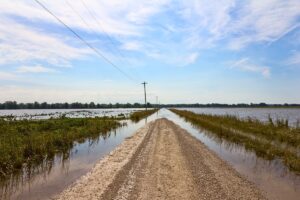
The Mississippi River Basin, which hosts 240 million acres of cropland, is increasingly vulnerable to catastrophic flooding. In addition, the EPA reports that 35-40% of lakes have excess nitrogen and phosphorus, resulting in toxic algal blooms, fish mortality, and dead zones. Natural infrastructure, such as wetlands, buffers, and floodplain restoration, can significantly reduce flooding and loss of productive cropland while improving water quality. Researchers will quantify the economic costs and benefits of integrating natural infrastructure across the basin landscape, in support of policy planning and advocacy. They’ll also assess how much optimal placement of natural infrastructure could reduce economic damages from nutrient pollution and flooding, and whether natural infrastructure could improve retention of carbon in agricultural soils – critical for soil health and climate mitigation.
Cornell: Mainul Hoque, Applied Economics and Policy
EDF: Will McDow
Developing a Modeling Framework to Explore the Potential Value of an Environmental Water Manager for California’s Sacramento Valley (EDF)
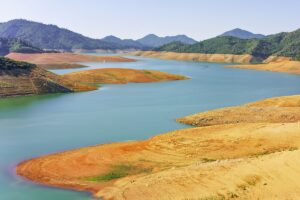
In response to California’s growing water crisis, the state has invested billions of dollars into water storage, habitat resilience, and protection of water bodies. In Nov. 2023, the state fast-tracked the Sites project, a pumped-storage reservoir off the Sacramento River that includes 17% of storage space reserved for environmental needs. This project will build on work led by EDF’s Climate Resilient Water Systems group to advance the concept of an Environmental Water Manager. Researchers will develop modeling tools to test flexible decision-making frameworks that would enable the water manager to respond quickly to real-time conditions, think more broadly about environmental water budgets, and adapt management across the Sacramento system.
Cornell: Patrick Reed, Civil and Environmental Engineering
EDF: Gopal Penny
Assessing the Scale, Longevity and Equity of Methane Emission Reduction from Dairy Anaerobic Digester Systems (EDF)
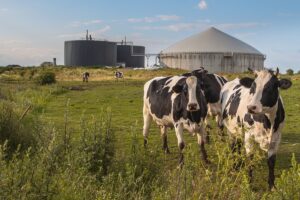
Anaerobic digestion on dairy farms is a climate mitigation strategy whereby methane emissions from dairy manure are captured for energy use. Such systems offer various economic and environmental co-benefits, but are long‐term investments that require both substantial upfront costs and reliable connection into the existing electricity or natural gas network. Using spatial information on gas infrastructure and farm-related variables, researchers will study the incentives and barriers behind farmer adoption of anaerobic digesters. This will consist of documenting existing and proposed incentive structures in the U.S. and Europe, including private carbon credit programs, and public cost-sharing and tax-incentive programs; surveying dairy farmers who have adopted and then abandoned their digester systems; and interviewing agricultural lenders, representatives from dairy producer associations, and energy companies to better understand how to sustainably finance anaerobic digesters and spur adoption.
Cornell: Wendong Zhang, Dyson School
EDF: David McLaughlin
Public Risk Pooling: Opportunities to Drive Climate Adaptation (EDF Impact Grant)
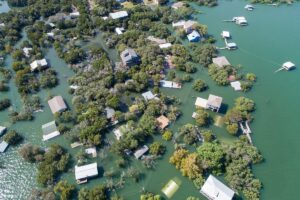
Climate change and land use management challenges have created a crisis in U.S. property insurance markets: more frequent, more extreme storms have pushed several private insurers to insolvency. In many states, public insurance markets are a (costlier and less comprehensive) resource for homeowners who can’t access private markets. Public insurance markets are well positioned to drive risk reduction. This project will identify the levers public insurance programs use to support risk reduction, barriers to expanding their use, and paths of policy reform to equitably increase the resilience of areas facing growing risk from natural hazards, while simultaneously stabilizing insurance markets.
Cornell: John Zinda, Global Development
EDF: Carolyn Kousky
Designing a Reliable and Scalable Sampling Strategy for Regional Soil Carbon Stock Monitoring (EDF-Cornell Atkinson Postdoc)

Proactive management of agricultural soils can sequester carbon, build soil health over time and contribute to climate mitigation, adaptation and long-term farm viability. Governments and private actors are creating carbon markets to encourage and pay farmers to adopt sustainable management practices, but they’re hampered by difficulties in verifying and quantifying changes in soil carbon levels. Researchers will leverage soil carbon data collected by EDF and collaborators and couple it with data from soil surveys, topography, remote sensing and land management records to define agricultural management zones and create digital soil mapping. This work aims to optimize strategies for surveying soil carbon, and thus improve reliability in carbon markets.
Postdoctoral Associate: German Mandrini
Cornell Advisor: Louis Longchamps, Soil and Crop Sciences
EDF Advisors: Emily Oldfield and Jocelyn Lavalee
Innovative Nutrients Biomining From Agricultural Wastes Coupled with GHGs-Methane-N2O Mitigation (EDF-Cornell Atkinson Postdoc)

This project aims to develop a sustainable biotechnology for nutrient recycling from livestock manures to enable a circular economy and mitigate climate impacts. Anaerobic digestion is a process whereby microorganisms break down biodegradable materials, and climate-warming methane-containing biogas can be captured and reused. However, the leftover effluent from anaerobic digestion is high in nutrients like phosphorus and nitrogen, which can pollute waterways. Researchers aim to demonstrate an innovative biotechnology that can simultaneously mitigate greenhouse gas emissions while upcycling methane, phosphorus and nitrogen into more-sustainable fertilizers.
Postdoctoral Associate: YanFei Tang
Cornell Advisor: April Gu, Civil and Environmental Engineering
EDF Advisor: Joe Rudek
Evaluating Food Security and Carbon Sequestration Trade-offs of Potential Mesopelagic Fisheries (EDF-Cornell Atkinson Postdoc)
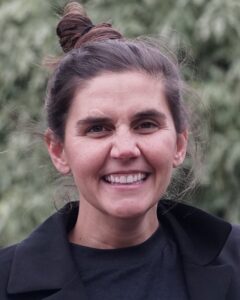
The mesopelagic zone (200–1000 meters deep in the ocean) contains a huge amount of the ocean’s biomass. The small fish that live in the mesopelagic zone play a vital role in the biological carbon pump that moves carbon to the seafloor for long-term sequestration. Mesopelagic fish are currently being considered as a new potential source of food for aquaculture, as farmed fish demand is growing and additional food sources are needed to feed carnivorous fish (such as salmon). This project will evaluate the trade-offs between potential disruption to carbon sequestration and human nutrition in commercial exploitation of mesopelagic fish.
Postdoctoral Associate: Joyce Yager
Cornell Advisor: Eugene Won, Animal Science
EDF Advisors: Julia G. Mason and Mattias Cape
Maximizing Carbon Sequestration and Avoided Greenhouse Gas Emissions by Eco-friendly Seaweed Processing Systems (EDF-Cornell Atkinson Postdoc)

In 2023, Environmental Defense Fund launched a demonstration seaweed and mussel farm in Cabalian Bay, the Philippines, in hopes of understanding whether seaweed production could improve ocean habitats and sequester greenhouse gases, while contributing to more sustainable sources of food, biofuel, cement, plastics or fertilizers. Researchers will collaborate with Philippine farmers to identify the most promising products manufactured from seaweeds in Cabalian Bay. Options include creating biofuels and fertilizers, applying seaweed to livestock manure lagoons to decrease methane emissions, or turning seaweed into plastics, cement composites, adobe, pavement, or roofing materials.
Postdoctoral Associate: SantanKumar Chaurasiya
Cornell Advisor: Fengqi You, Chemical and Biomolecular Engineering
EDF Advisor: Gemma Carroll
Identifying Technology and Knowledge Gaps for Characterization of SuperHot Rock Geothermal Reservoirs to Better Inform Policy Pathways Toward New Research, Development, and Demonstration (CATF)
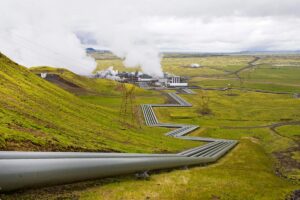
The project involves a collaboration between Cornell Atkinson Center for Sustainability and the Clean Air Task Force (CATF) to advance the development of SuperHot Rock (SHR) geothermal reservoirs. It aims to leverage existing knowledge and ongoing work to identify priority areas for federal research investments in SHR technology. The project will focus on summarizing state-of-the-art techniques, identifying knowledge gaps, and developing heat roadmaps.
Cornell: Seth Avram Saltiel, Earth & Atmospheric Sciences
CATF: Terra Rogers, Program Director, SuperHot Rock Energy
Strategic and Viable Interventions in Agricultural Greenhouse Gas Emissions Management for a Sustainable Food and Climate Future (EDF)

Cornell and EDF partners seek to understand the life-cycle greenhouse gas impacts of existing fertilizer production methods, and to assess emerging technologies to determine how they might help reduce runoff and climate impacts. Previous efforts have focused on industrial production of fertilizers or on-farm fertilizer practices. This project seeks to make a holistic assessment of impacts through the entire supply chain.
Cornell Investigators: Greeshma Gadikota, Civil & Environmental Engineering
EDF Investigators: Alison Eagle and Ramon Alvarez
Evidence-based Urban Greening Programs and Health: A Mixed Methods Approach to Improving Environmental Justice (EDF)

The research team plans to develop a framework to connect urban forestry initiatives to climate and community health outcomes. Using data from the National Weather Service and the New York State Department of Health, they will predict block-level ambient heat exposure in New York City from 2015-2022, and compare that to heat-related emergency department visits and hospitalizations. They’ll also conduct interviews with urban foresters, public health officials, community organizations, and other stakeholders to better understand the practical, economic, and policy-related considerations of urban tree planting.
Cornell Investigators: Arnab Ghosh, Weill Cornell Medical College; Dan Katz, School of Integrative Plant Science; and Qi Li, Civil and Environmental Engineering
EDF Investigators: Fiona Lo; Julia Gohlike; and Lesa Walker, EDF consultant
USDA Urban Forest Service: Alex Young
Valuation of Biodiversity and Ecosystem Services in the Agriculture-Conservation-Solar Energy Matrix (TNC)
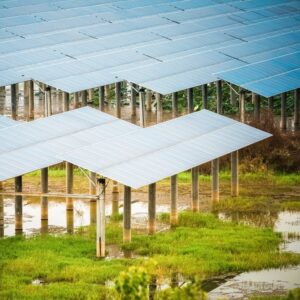
Solar energy provides a necessary means by which to mitigate climate change and to facilitate the energy transition from fossil fuels to renewable energy globally. However, solar energy development is a major driver of land-use change and there currently exist great potential for land-use competition between solar energy development and agriculture. This project will inform sustainable solar energy development in New York by elucidating key biodiversity and ecosystem-service based values of lands in the land-use matrix of agriculture, solar energy, and conservation.
Cornell Investigator: Steve Grodsky, Natural Resources and the Environment
TNC: Liz Kalies
Evaluation of State and Federal Policies for Impact on Water Quality (TNC)
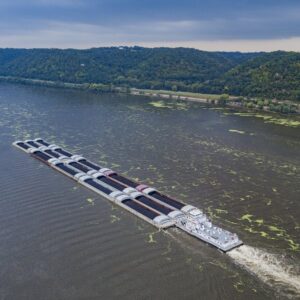
Despite decades and billions of dollars to support conservation, nutrient loads continue to increase while adoption of conservation practices remains relatively low, limiting the ability to meet freshwater biodiversity goals in keystone basins such as the Mississippi River and Great Lakes. This collaboration brings together expertise in policy and environmental economics at Cornell University and the University of Minnesota (UMN), with the on-the-ground expertise and relationships of TNC in conservation delivery and state legislative engagement.
Cornell Investigator: Cathy Kling, Dyson School
UMN Investigator: Bonnie Keeler
TNC: Randy Dell
Manure Mesocosms: Test Systems to Inform Sustainable Dairy Manure Management (TNC)
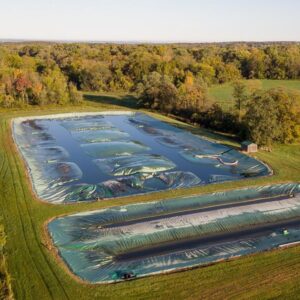
The intensification of dairy operations has improved the efficiency of dairy production and increased the production of high-quality milk, but has also led to unintended environmental impacts, like increased greenhouse gas emissions. As livestock production continues to intensify there is increasing need to evaluate scalable, low-capital cost solutions that improve the sustainable management of manure in long-term storage. The researchers will establish dairy manure mesocosms where manure additives, manure treatments, and management can be experimentally evaluated for their ability to reduce emissions from long-term manure storage and their economic feasibility. They will leverage this partnership with TNC to expedite the rollout of practical solutions.
Cornell Investigators: Jason Oliver, Animal Science; Lauren Ray, Animal Science
TNC: Alisha Staggs, Partha Ray
The Climate Change Housing Deficit: A Scalable Tool to Justify Zoning Reforms in Flood-Prone Areas (IIF Momentum Funding)

As the global climate crisis accelerates, the nation’s developed waterfronts are at particular risk from its worsening impacts. More than one million people in the tri-state metropolitan region currently live in flood-prone areas, about half in dense urban areas – that total number is expected to double by 2050. About one-third of this at-risk population lives in conditions that make them especially vulnerable, including those with low-incomes, non-native English speakers, the elderly, and the very young. The researchers will to conduct a collaborative research and advocacy project to better understand the impacts of climate change on housing stock in New York City, Long Island, and Westchester County; develop actionable and scalable policy solutions to create more housing in climate-appropriate locations; and create a communications and advocacy strategy to implement proposed policy solutions.
Cornell Investigator: Sara Bronin, City and Regional Planning
Regional Plan Association: Melissa Kaplan-Macey, Moses Gates, Robert Freudenberg
Scaling the Biodiversity Progress Index to Central America (IIF Momentum Funding)

This project will develop and provide accessible, country-specific data products on biodiversity that meet local information needs, inform policy, and engage conservation decision-makers across Central America.
Cornell Investigator: Courtney Davis, Lab of Ornithology
Integrating Policy, Finance, and Hyperlocal Building Energy Modeling (IIF Momentum Funding)
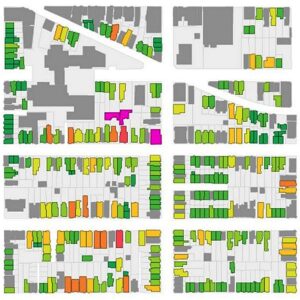
In 2020, buildings and construction accounted for 37% of global greenhouse gas emissions. Their decarbonization is an urgent, massive, cross-disciplinary challenge that requires immediate attention to limit the adverse effects of climate change. The researchers will create a novel methodology for scenario-driven urban energy simulations, incorporating future climate, finance, policy models, and sustainable technology adoption predictions to deliver a web-browser-based planning tool tailored to city stakeholder needs.
Cornell Investigator: Timur Dogan, Architecture
RMI: Stephen Abbott, Ryan Shea, Jingyi Tang
Understanding the Spread of Aedes aegypti Mosquitoes and Dengue Virus in the Peruvian Amazon to Effect Positive Public Health Change (IIF Momentum Funding)
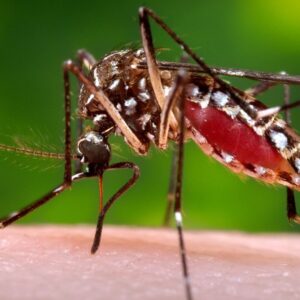
Aedes aegypti is an invasive mosquito species with a wide distribution around the world. It is the main vector of several diseases, including dengue, a viral infection causing severe disease, and nearly 40,000 deaths per year. In the northern Peruvian Amazon, these mosquitoes have increasingly developed insecticide resistance. This project will engage community health workers in the interpretation of resistance data, train them on mosquito-borne diseases, and translate related scientific publication(s) into Spanish.
Cornell Investigator: Laura Harrington, Entomology
ClimateRice Initiative (IIF Momentum Funding)
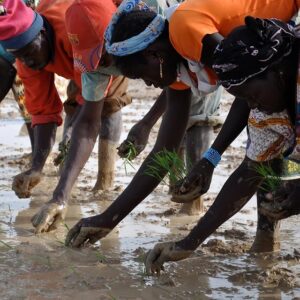
To successfully address climate change, we must rapidly adopt a different approach to growing rice, a daily staple for more than half of the world’s population. Rice accounts for 12% of anthropogenic methane emissions and 33% of global freshwater withdrawals. System of Rice Intensification (SRI) is a proven alternative for rice farming, and is practiced today in more than 60 countries by about 5% of rice farmers. ClimateRice is a collaborative initiative between Cornell’s Climate-Resilient Farming Systems Program, Department of Global Development at Cornell CALS and CarbonFarm, a technology start-up developing an innovative satellite-based carbon finance mechanism for rice.
Cornell Investigator: Erika Styger, Global Development
CarbonFarm: Vassily Carantino
Climate-controlled Cattle Respiration Chambers

Climate-controlled animal respiration stalls (the first in the U.S.) will allow researchers to definitively measure, verify, and monitor methane and other gas emissions from cows – information that will support a slate of investigations aimed at improving the sustainability and productivity of farms around the world. The chambers monitor oxygen consumption and methane, CO2, and hydrogen emissions in real time. Researchers may put individual cows in a chamber in order to get an absolute measure of gases consumed and produced.
Cornell Investigator: Joe McFadden (CALS/Animal Science)
Supported by: Cargill, Genesee Valley Regional Market Authority, Balchem Corporation, New York State Department of Agriculture and Markets
Streamlining Assessment of Enteric Methane Inhibiting Drugs & Feed Additives for FDA Approval (EDF Impact Grant)
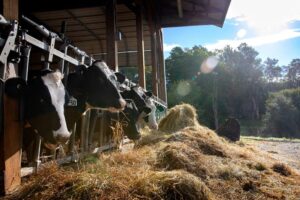
Researchers are working collaboratively to address key barriers to timely adoption at scale of animal drugs and food additives that reduce methane production. This project will leverage Cornell expertise in livestock nutrition and management, available research and research capacity, and experience with regulatory approval requirements, plus EDF proficiencies in stakeholder collaboration and policy advocacy to address barriers related to regulatory approval.
Cornell Investigators: Mike Van Amburgh, Animal Science; Daryl Nydam, Population Medicine + Diagnostic Sciences; Thomas Overton, Animal Science; Joseph McFadden, Animal Science; Kristan Reed, Animal Science; Jefferson Tester, Chemical + Biomolecular Engineering; Robert Howarth, Ecology + Evolutionary Biology; Peter Wright, Animal Science; Xingen Li, Animal Science
EDF Investigators: Katie Anderson, Holly Pearen, and Daniel Kaiser
Deploying Novel Sensor Technology and Proven Data Analytics to Assess Fugitive Emissions from the Hydrogen Supply Chain (EDF Impact Grant)
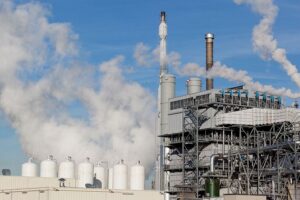
The extensive use of hydrogen is seen as a key strategy to achieve large-scale decarbonization. However, hydrogen (H2) is a potent and short-lived indirect greenhouse gas in addition to being highly flammable. H2 in the atmosphere can warm the climate indirectly by extending the lifetime of methane, triggering reactions that form tropospheric ozone, and breaking down into water vapor in the stratosphere. Researchers will assess the immediate impact on the critical societal need of assessing fugitive emissions from the hydrogen supply chain with new tools to measure hydrogen and methane emissions, as well as supply chain impacts.
Cornell Investigators: John Albertson, Civil & Environmental Engineering; Greeshma Gadikota, Civil & Environmental Engineering
EDF Investigators: Tianyi Sun and Ilissa Ocko
Understanding Urban Landscape Effects for More Actionable Hyperlocal Air Pollution Estimates (EDF)

Improving air quality in cities in the U.S. and worldwide is one of the key aspects of building sustainable and healthy communities. Researchers will harness data collected by Google Street Maps to assess air pollution at the pedestrian level. After the first year, this research will establish the foundation for several future research directions.
Cornell Investigator: Qi Li, Civil & Environmental Engineering
EDF Investigators: Lauren Padilla and Tammy Thompson
Updating Global Spatial Datasets of Livestock Production and Greenhouse Gas Emissions (EDF)
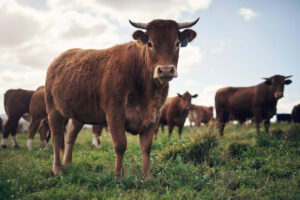
Overconsumption of animal source foods has led to significant environmental issues and health problems. This project will create a framework for using machine learning to constantly update a global livestock production and emissions dataset, first developed by Mario Herrero (Global Development, Cornell) and partners over fifteen years ago. The updated datasets will provide timely and relevant information to inform sustainability-related policy. Herrero and Joe Rudek (EDF) will lead the research.
Cornell Investigator: Mario Herrero, Global Development
EDF Investigator: Joe Rudek
Cooperative Strategies for Just and Ecological Adaptation to Flooding in New York City (EDF)

Federal funding for post-disaster response and climate adaptation favors single-family housing, challenging support for the multifamily housing that characterizes most of where people of color live. Low-income housing, especially for racialized minorities, is often sited in less desirable, flood-prone areas. Silos among researchers and practitioners working on climate adaptation and those working on housing and advocacy impede the design of just and ecologically adaptive housing strategies. Researchers will assist the new NYC Mayor’s Office of Climate and Environmental Justice in connecting housing advocacy groups, community organizations, academics, and government staff to develop strategies for more equitable flood relief.
Cornell Investigators: Linda Shi, City and Regional Planning
Rebecca Morgenstern Brenner – CIPA/School of Public Policy – co-PI
Sara Bronin – AAP – co-PI
EDF Investigator: Kate Boicourt
Community-driven Air Quality Advocacy in Manhattan Chinatown (EDF)

Despite the disproportionate pollution and death rate from COVID that East Asian immigrants experienced in NYC, they are among the least involved in environmental protection initiatives. Researchers will explore how cultural norms and tensions among Chinese immigrant sub-groups shape community advocacy in environmental protection efforts. They will conduct interviews and develop relevant messaging in multiple languages to be used as a basis for conversations around air quality issues in Chinatown and future outreach programs.
Cornell Investigator: Y. Connie Yuan, Communications and Global Development
EDF Investigator: Rainer Romero-Canyas
Other: Cindy Lin, Former Cornell Atkinson Postdoc (now at Penn State University)
Investigating the Financial Impact of Extreme Weather on Midwestern Farmers over Time and by Farming System (EDF)
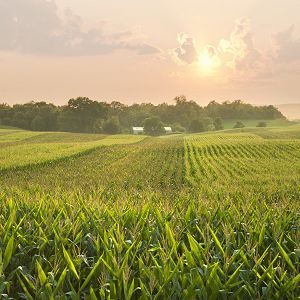
Researchers will quantify the effect of variable weather and climate change on farm financial performance, using long-term local data from the Kansas Farm Management Association. The resulting analysis will inform the risk that agricultural lenders face from climate change and the role of lenders in supporting a transition to more resilient farming practices and systems. The researchers plan to engage agricultural lenders for feedback on their analysis in a conference panel on climate change and agricultural financial risk.
Cornell Investigators: Ariel Ortiz-Bobea, Dyson School
EDF Investigators: Maggie Monast, Director of Working Lands; Vincent Gauthier; Dave McLaughlin, Economist
Other: Jenny Ifft, Kansas State University
Addressing Equity in the Army Corps Cost-benefit Analysis Methodology for Flood Protection Infrastructure (EDF)
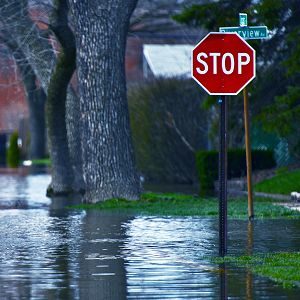
This research project will provide evidence on and solutions to the inequity created by applying a strict cost-benefit analysis in the provision of federal flood protection infrastructure. Environmental justice communities–communities with high-flood risk, increased vulnerability, and whose populations are often predominantly Black, Indigenous, and people of color (BIPOC)—tend to have lower property values that are less likely to justify recovery costs within this strict application of a cost-benefit analysis framework. This project aims to protect some of our country’s most vulnerable residents and communities from the increasing risk of flooding. Research partners will convene a workshop with community leaders and academics to develop a revised cost-benefit analysis methodology that incorporates equity into federal flood protection programs.
Cornell Investigators: Todd Gerarden, Dyson School
EDF Investigators: Dave McLaughlin, Economist
Capturing Young Children’s Comprehension and Emotional Reponses to Climate Change (EDF)

Researchers will examine attitudes and behaviors among young children regarding global climate change (GCC), to assess their understanding and how it makes them feel. The researchers will then develop GCC curriculum guidelines for early childhood educators, in collaboration with Mom’s Clean Air Force and Co-Operative Extension – 4-H. These guidelines will describe what aspects of GCC young children can comprehend and how they respond emotionally to GCC.
Cornell Investigator: Gary Evans, Design and Environmental Analysis
EDF Investigator: Elizabeth Brandt Regional Field Manager, Mom’s Clean Air Force; Rainer Romero
RuFaS (Ruminant Farm Systems) Dairy Model (IIF Momentum Funding)

Cornell researchers are conducting a thorough, scientifically sound evaluation of the Ruminant Farm Systems (RuFaS) model, which provides an evolving model ecosystem to guide dairy farm decision-makers on paths toward sustainable dairy production.
Cornell Investigators: Kristan Reed (CALS/ANSC), Fengqi You (ENG/CHEME), Johannes Lehmann (CALS/SCS), Dominic Woolf (CALS/SCS), Quirine Ketterings (CALS/ANSC), Curt Gooch (CALS/BEE)
Dairy Management Inc. (DMI) Investigator: Juan Tricarico
General Mills Investigator: Jim Eckberg
RuFaS Exec Team: Hector Hernandez (SDSU), Ermias Kebreab (UC Davis), Greg Thoma (U of Arkansas), Jennie Popp (U of Arkansas), Victor Cabrera (UW Madison), Jennifer Van Os (UW Madison), Peter Vadas (USDA), Kevin Panke-Buisse (USDA-ARS)
WWF Investigator: Melissa Ho
TNC Investigator: Kelly Racette, Steve Richter
Valley Ag Software Investigator: Jordan Kraft, Robin Jacobs
Cayuga Milk Ingredients Investigator: Kevin Ellis, Julia Smith
Producers: Doug Young (NY), Steve Maddox (CA), Bill Wavrin (WA)
Pandemic Prevention Policy Analysis (IIF Momentum Funding)

Building on the momentum of a successful 2021 joint event with the World Wildlife Fund (WWF), “Emerging Disease, Wildlife Trade, and Consumption: The Need for Robust Global Governance—Exploring Ways to Prevent Future Pandemics,” Cornell Atkinson will fund a postdoctoral researcher with specific strengths in policy and legal analysis, to engage with WWF and other NGOs to assess high-level governance gaps inhibiting progress on this issue.
Cornell Investigator: Steve Osofsky
World Wildlife Fund (WWF)
Repair and Redress: Growing the Repertoire of Community-led Climate Justice (AVF Supplement)
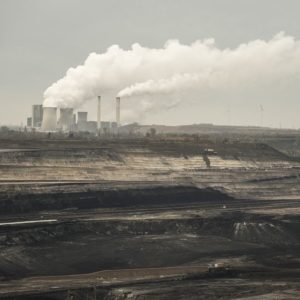
This project provides additional support for the 2021 AVF, Expanding the Repertoire of Community-led Climate Justice Practices, supporting collaborations with three groups of external experts: one with situated and intimate knowledge of the effects of environmental change in concrete places and communities; one working actively on generalizable methods and techniques; and one looking to imagine new models of community and justice in a climate-disrupted world.
Cornell Investigators: Christopher Csikszentmihalyi (Information Science), Phoebe Sengers (Information Science), and Steven Jackson (Information Science)
External Collaborators: Public Laboratory for Open Technology and Science, Public Accountability Initiative, The Environmental Data & Governance Initiative (EDGI)
Participatory Forest Restoration and Community-based Monitoring in Malawi (AVF Supplement)

This project provides additional support for the 2021 AVF Climate Change Preparations Informed by Local Forest Inventories, supporting a collaboration with Soil, Food and Healthy Communities (SFHC), a Malawian non-profit organization that has trained thousands of farmers and vulnerable groups in agroecological practices over the past 20 years, and which is currently facilitating the AVF-funded participatory forest inventory and climate change scenarios project.
Cornell Investigator: Rachel Bezner Kerr (Global Development)
External Collaborators: Soil, Food and Healthy Communities (SFHC); Lilongwe University of Natural Resources and Agriculture; Scientists from Mzuzu University, Germany, and Norway; and Belmont Forum/NSF-funded FARMS for Biodiversity
Sprouted Grains Grown Using Hydroponic Technology: Effects on Milk Production Efficiency and Nutrient Utilization in Dairy Cattle (AVF Supplement)

This project provides additional support for the 2021 AVF, Increasing Milk Production and Reducing Greenhouse Gas by Feeding Cows Hydroponic Sprouts, to support two student interns from Tuskegee University to work with staff from Grōv and the AVF team to operate the hydroponic grow system and manage fodder growth, which will involve monitoring and controlling grow condition protocols.
Cornell Investigators: Joseph McFadden (Animal Science), Neil Mattson (Horticulture), Kristan Reed (Animal Science), and Mike Van Amburgh (Animal Science)
External Collaborator: Dr. Olga Bolden-Tiller (Tuskegee University)
Strategies for Climate-Ready Fishing Communities: Optimal Fishing Portfolios for Changing Ocean Ecosystems (TNC)
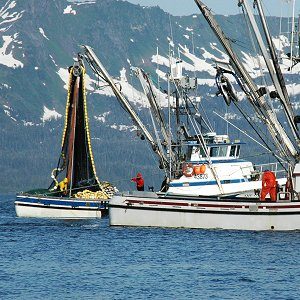
Climate change is shifting where marine species can live, particularly in high latitude oceans. As a result, fishing communities face increasing threats to their economies and cultural heritage while they also risk losing fishing access under changing marine management. How can communities maintain access to commercial fishing resources in the face of climate-driven ocean changes? Focusing on Alaskan fisheries, this team will seek to assess the amount of climate risk facing fishing communities, identify balanced community fishing rights portfolios that are responsive to climate-driven fishery changes, and create innovative finance opportunities to support climate adaptation strategies for fishing communities. The project will integrate ongoing conservation finance efforts at Cornell and TNC, in hopes of attracting capital for community-based lending programs to assist fishing communities with climate adaptation.
Cornell Investigators: Suresh Sethi, Natural Resources; Alex Flecker, Ecology and Evolutionary Biology; Carla Gomes, Computer Science; John Tobin-de la Puente, Dyson School
TNC Investigators: Adrianna Muir, TNC Alaska; Kate Kauer, TNC California; Rich Bell, TNC North America
Assessing Progress and Barriers to Ecological Restoration of State Property Buyout Programs (TNC)
Nationwide, more than 13 million homes are located in floodplains and 2.5 million properties will likely be chronically inundated by 2100. After each disaster, pundits debate whether communities should “give parcels back to Mother Nature,” as Governor Cuomo said after Hurricane Sandy. Over the last decade, several states have developed buyout programs, but no studies have systematically compared and analyzed them. This team will study programs in five states (New York, New Jersey, Florida, Texas, and Washington) that have created buyout programs which are promising from community and ecological health perspectives. They will then work with state program officers, TNC staff, and Cornell faculty and students to jointly identify specific research goals, concerns, data needs, case study sites, and research outputs, enhancing the likelihood of success.
Cornell Investigators: Linda Shi, City and Regional Planning; Amelia Greiner Safi, Master of Public Health Program; Rebecca Morgenstern-Brenner Cornell Institute for Public Affairs, Jamie Vanucchi, Landscape Architecture
TNC Investigators: Anna Brown, TNC North America Climate Adaptation Lead; Christine Shepard, TNC Director of Science; Marci Bortman, NY Director of Climate Adaptation
Soil Health Assessment, Management, and Policy to Support Sustainable Land Management in China (TNC)

Compared to the United States, China has much less agricultural land, by area. China’s grand challenge is to sustainably feed more than 1/6th of the world’s population on less than 1/14th of the world’s arable land area, while resources diminish and the climate changes. In order to ensure future food, water, and energy security, the health of China’s soils must be improved. Soil assessment methods in China currently focus on production-oriented management, rather than sustainable ecosystem services. Cornell University is a pioneer in soil health education, research programs, and methodologies for soil health assessment. This team proposes to adapt the Cornell framework for Chinese production environments, which will be essential for the holistic assessment of soil functioning, identification of sustainable management solutions, prioritizing TNC program efforts, and informing policy for different stakeholders.
Cornell Investigators: Harold van Es, Soil and Crop Sciences; Rebecca Schneider, Natural Resources; Joseph Amsili, Cornell Cooperative Extension
TNC Investigators: Yi Ling, TNC China Program; Nan Zang, TNC China Program; Junling Zhang, China Agricultural University
Agricultural Burning in India (AVF Supplement)
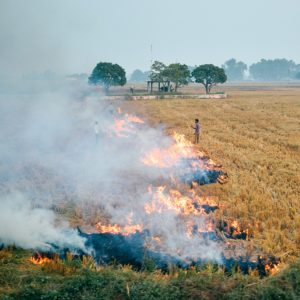
This project provides additional support for the 2020 AVF Bending Agricultural Burning Trajectories in Eastern India, enabling engagement with the International Rice Research Institute (IRRI) to integrate a gender component in the research.
Cornell Investigator: Andrew McDonald (CALS/CSS)
External Collaborator: International Rice Research Institute (IRRI)
Antibacterial Resistance, Ithaca Drinking Water (AVF Supplement)

This project provides additional support for the 2020 AVF Antibacterial Resistance in Ithaca’s Drinking Water, enabling the participation and engagement of three external partners, to explore more advanced drinking water treatment technologies, coordinate with external researchers, enhance local drinking water testing, and translate the research results and outcomes into a public-friendly format.
Cornell Investigator: April Gu (Civil and Environmental Engineering)
External Collaborators: Sustainable Water Initiative for Tomorrow (SWIFT): Charles B. Bott, Water Research Foundation (WRF): John Albert, Ithaca Drinking Water Treatment Plant
Equipping K-12 schools in COVID-19 (AVF Supplement)

This project provides additional support for the 2020 AVF Reducing Healthcare Workers’ Risk From Disease Spread, to work with School in the Square (S2), and independent public charter school in Manhattan, as a test site to develop science-driven, school-specific strategies to mitigate virus transmission in indoor environments through an integrated monitoring and modeling approach.
Cornell Investigators: Max Zhang (Mechanical and Aerospace Engineering), Nathaniel Hupert (Population Health Sciences)
External Collaborator: School in the Square (S2)
Coalition for Private Investment in Conservation (EDF Impact Grant)

The Coalition for Private Investment in Conservation (CPIC) manages over a dozen completed investment blueprints, many developed with support from the PwC consulting team working with CPIC thematic working groups per Cornell Atkinson a conservation finance grant.
Cornell Investigator: John Tobin-de la Puente (JCB/Dyson)
Coalition for Private Investment in Conservation (CPIC)
Reduction of Heavy Metals in Infant and Toddler Foods (IIF Impact Funding)

Because of the health benefits of fruits and vegetables, there has been an increasing tendency to add fruits and vegetables into infant and toddler foods. However, the potential risk of high heavy metal contents in fruits and vegetables due to their natural exposure to soil/water, and pesticides, is a significant concern. The Baby Food Council, a collaboration among Cornell University and a group of infant and toddler food companies, seeking to reduce heavy metals in the companies’ products, provided primary support for a project to evaluate the best management practices to reduce harmful heavy metals in infant and toddler food. Cornell researchers will determine the contents of heavy metals, such as Lead, Cadmium, Arsenic, and Mercury; and assess the effects of processing and facilities on heavy metals in the final products.
Cornell Investigator: Rui Hai Liu (CALS/FS)
EDF Investigator: Tom Neltner (Chemicals Policy Director)
Tracing Aquaculture Feed Sources to Guide Mitigation of Biodiversity and Pollution Impacts (EDF)
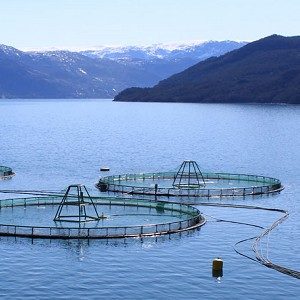
Aquaculture is the fastest growing source of animal protein to feed humanity. Its exponential expansion is fueled by harvesting of wild fish, which are reduced into fishmeal and oil that are critical ingredients in pelleted feeds. Intensive fishing has contributed to collapse of many stocks, yet market demand to feed both people and farmed fish is expected to continue growing, and could lead to widespread alteration of marine food webs. At the same time, intensive fish farming is creating further pollution of rivers, lakes, and coastlines. These diverse impacts of aquaculture require new mitigation strategies to safeguard marine biodiversity and human food security. Our vision is to use genetic tracking of fish sources and mercury isotope tracing of contaminants to reveal what types of intervention would most enhance aquaculture sustainability.
Cornell Investigators: Peter McIntyre, Natural Resources; Nina Therkildsen, Natural Resources
EDF Investigators: Tim Fitzgerald, Oceans Program
Can Wind and Solar Save the Amazon? An Analysis of Energy System Feasibility and Economic Costs (TNC)

While hydropower provides the majority of current renewable energy electricity production, and it is a reliable and mature renewable energy technology, it also has negative impacts on freshwater systems and livelihoods. This project will assess the feasibility to “repower” energy systems by integrating greater proportions of low-impact wind and solar renewable energy, create a country dashboard tool for low impact energy provisioning portfolios, and develop general principles for understanding thresholds of intermittent low-impact wind and solar to meet existing and future energy demands.
Cornell Investigator: Eilyan Bitar, Electrical and Computer Engineering
TNC Investigators: Joe Kiesecker, Lead Scientist – Global Lands; Sharon Baruch-Mordo, Spatial Scientist – Global Lands
Modeling Sound Attenuation and Individual Space Usage to Estimate Density of Animal Populations (TNC)
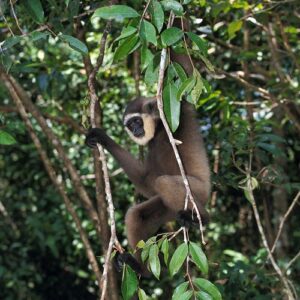
Population density is a common way to assess the health of a species in an area. Passive acoustic monitoring can provide reliable population density estimates for some species, but it often requires human interpretation of data. This project will further automate data analysis and incorporate new statistical models to improve density estimates of endangered gibbons in Borneo.
Cornell Investigators: Angela Fuller, Natural Resources and the Environment; Holger Klinck, Lab of Ornithology
TNC Investigators: Dr. Edward Game, Lead Scientist – Asia Pacific Region; Mohamad Rifqi, Primatologist – Indonesia Program
Size of the Prize: Establishing Soil Carbon Sequestration Potentials (TNC)
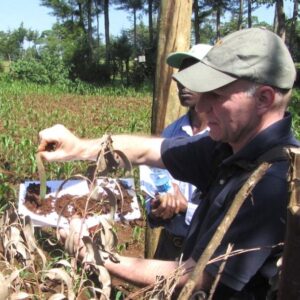
The role of soil organic carbon in global carbon cycles is receiving increasing attention both as a potentially large and uncertain source of CO2 emissions in response to rising global temperatures and as a natural sink for carbon that can reduce atmospheric CO2. This project will create decision support tools to help stakeholders–such as Ethiopia, Kenya, and Guinea as well as the African Development Bank and The World Bank–to achieve their goals in optimizing soil carbon sequestration while improving other soil ecosystem services such as food security, energy production, and the availability of clean water. The researchers will initially target select countries such as Ethiopia, Kenya, and Guinea as well as the African Development Bank and The World Bank.
Cornell Investigators: Johannes Lehmann, Soil and Crop Sciences; Jonathon Schuldt, Communications; David Wolfe, Horticulture; Dominic Woolf, Soil and Crop Sciences
TNC Investigators: Deborah Bossio, Lead Soil Scientist; Stephen Wood, Senior Scientist – Agriculture and Food Systems; Priya Shyamsundar, Lead Economist
